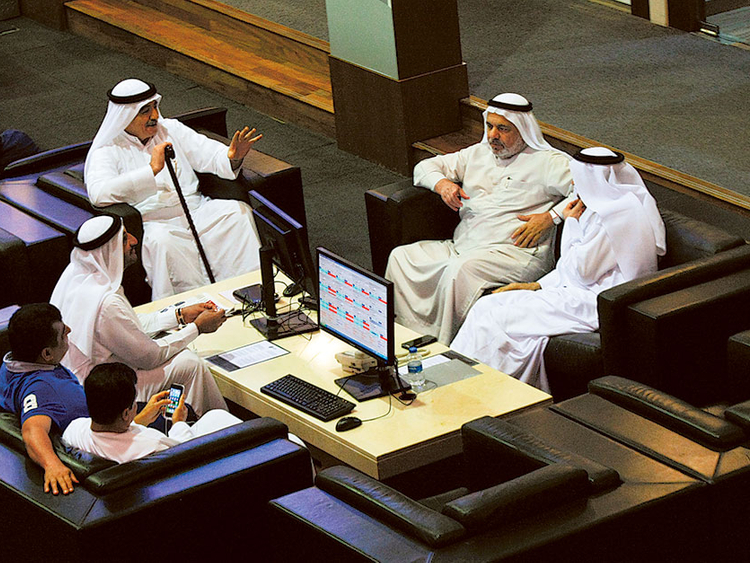Dubai: The past year and a half has been worse in the life of Sami, a 50-plus-year-old trader on the Dubai Financial Market (DFM), as the life high rally in the run-up to the MSCI upgrade fizzled out.
Sami’s portfolio was worth Dh5 million at the peak, riding very high on the news of MSCI upgrade of UAE, but his portfolio is just worth Dh300,000 now.
“For them, good news means to take share prices to the peak and sell them to small investors. People are losing money now than ever,” Sami said as he watched the Dubai index flirting with the keenly-watched levels of 4,000.
“I’m out of the market now, and just waiting for good levels to re-enter.”
Issues
The Dubai Financial Market General Index has doubled ever since the news of the MSCI upgrade was announced in June 2013.
It hit a life-high of more than 5,000 levels in May 2014, but the index came crashing down after the changes were effected by the index provider due to many company-specific issues like the overhaul at Arabtec and falling oil prices.
Even in 2015, the index is yet to match the 5,000 levels seen in early May 2014, and still down a fifth.
Fundamentals
“Regional investors were ahead of the game before the upgrade and we saw very high levels on Dubai and Abu Dhabi index. But after that, fundamentals changed a little bit as oil prices halved,"
The market had been pushed high before the upgrade but after you have this specific oil price decline and uncertainty in the region,” Saleem Khokhar, head of equities at National Bank of Abu Dhabi’s asset management group.
Arabtec — the star performer before the MSCI upgrade in May 2014 — has plunged 63 per cent to date in the period since over investor concerns that the then CEO Hasan Ismaik might dump his 30 per cent plus stake in the market after resigning.
Their concerns were also stoked by what the Abu Dhabi fund Aabar Investments would do if such a situation arose.
Next spoiler was the massive volatility in crude oil, after Saudi Arabia decided to keep the output steady in its last Opec meeting. The next meeting is due on June 5.
“But the focus is on the recovery in oil prices, which would drive the market in the longer term,” Khokar added.
Sami, who did not disclose his last name said, “hopefully, markets would be good during Ramadan.”
More rally in Qatar
Qatar Stock Exchange has been an underperformer to Dubai markets, and analysts feel that the markets may rally at the start of 2017.
“Overall the Qatari markets is not trading at a higher level that it traded a year ago. We have to look the underperformance in wider context as emerging markets of which Qatar is a part of are under a lot of pressure due to investor exit and strengthening of dollar,” said Muhammad Shabbir, head of equity funds & portfolios at Rasmala Investment Bank.
“There has been no interest in Qatari markets as of now as people feel that the real interest would start in 2017 for the soccer world cup in 2022,” Shabbir said, adding “the pressure on oil prices, has forced many oil and gas companies to re-look at their spending plans.”
Also many companies in the Qatari market have increased the foreign ownership limit after the MSCI upgrade, which has added to the overall attractiveness of the market.
“We like consumer names like Medicare. We are still positive on large caps like Qatari Insurance or Union National Bank,” Shabbir added.











